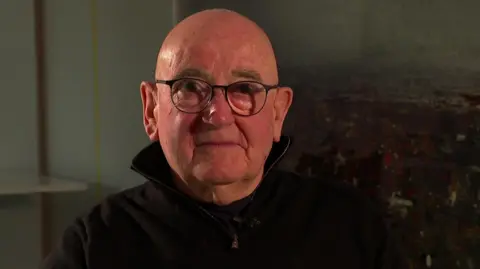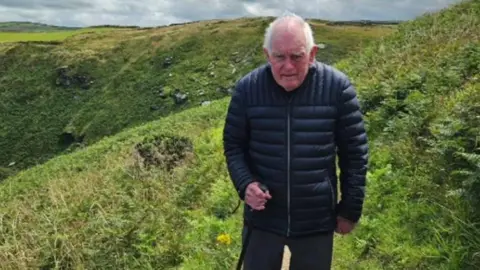Families need more dementia support warns expert
 BBC
BBCFamily carers in Cornwall need more support, a dementia expert has said.
Ian Sherriff, academic partnership lead for dementia at the University of Plymouth, said carers took on a lot more responsibility than people realised.
He said: "Carers need support to sustain the support they give the person living with dementia, because if they stop and the demand goes on the NHS and social care... this country would collapse."
The Department for Health and Social Care (DHSC) said it was doubling funding for dementia research to £160m a year by the end of 2024/25.
'Get ahead of it'
Dementia care costs in Cornwall have reached almost £496m a year, with patients and their families paying 63% of the bill, the Alzheimer’s Society found in its latest research.
It called on the government to increase access to early and accurate dementia diagnosis amid rising care costs.
Mr Sheriff said: "We've got to do something about diagnosis, we must get ahead of it - people shouldn't have to wait for a life-changing illness for a diagnosis."
In response, DHSC said a timely diagnosis was vital.
It said it was working to identify and treat more people and provide potential new treatments as they became available.
"Dementia is one of six major conditions included in our upcoming Major Conditions Strategy," a spokesman said.
 Sheila Chequers
Sheila ChequersCornwall resident Sheila Chequers lost her husband Michael, who was diagnosed with dementia at 78.
She said Michael was "totally content" with life before the illness took over.
"He loved his garden, he liked where we were, he was happy with life," she said.
Mrs Chequers said she took on a 24-hour carer role in the last two years of her husband's life.
She said: "I had to do absolutely everything, I was his brain, I had to be - he couldn't get himself a glass of water, he couldn't do anything.
"It is only with experience that I have realised that it is a major, but under recognised, disability."
Mrs Chequers said there was "no real help in her area" to give her "respite from being an unpaid 24-hour carer".
She said the government needed "major research, and it needs to be funded now".
'Colossal' effects
Marion Child, head of local services at the Alzheimer’s Society, said the disease was "the biggest health and social care issue of our time".
She said: "One in three people with dementia never receive a diagnosis, they are facing dementia alone without access the vital care, support, and treatments.
"If we don’t address diagnosis, we have no hope of addressing the major dementia challenges we face and reducing the cost to the health service and wider economy."
Ms Child said the impact of dementia was "colossal on the lives of those it affects, on the healthcare system and on the economy".
Mr Sherriff said the Alzheimer’s Society had been developing a drug to slow down the early stages of the disease.
He added blood test trials were beginning in the hope that more people would be able to access care, support and new drug treatments at an earlier stage.
"We've got this blood tests which you tell us if you were susceptible to having dementia [and] we've now got some medication being developed," he said.
"The future looks brighter than it did than five years ago."
Follow BBC Cornwall on X (formerly Twitter), Facebook and Instagram. Send your story ideas to [email protected].
